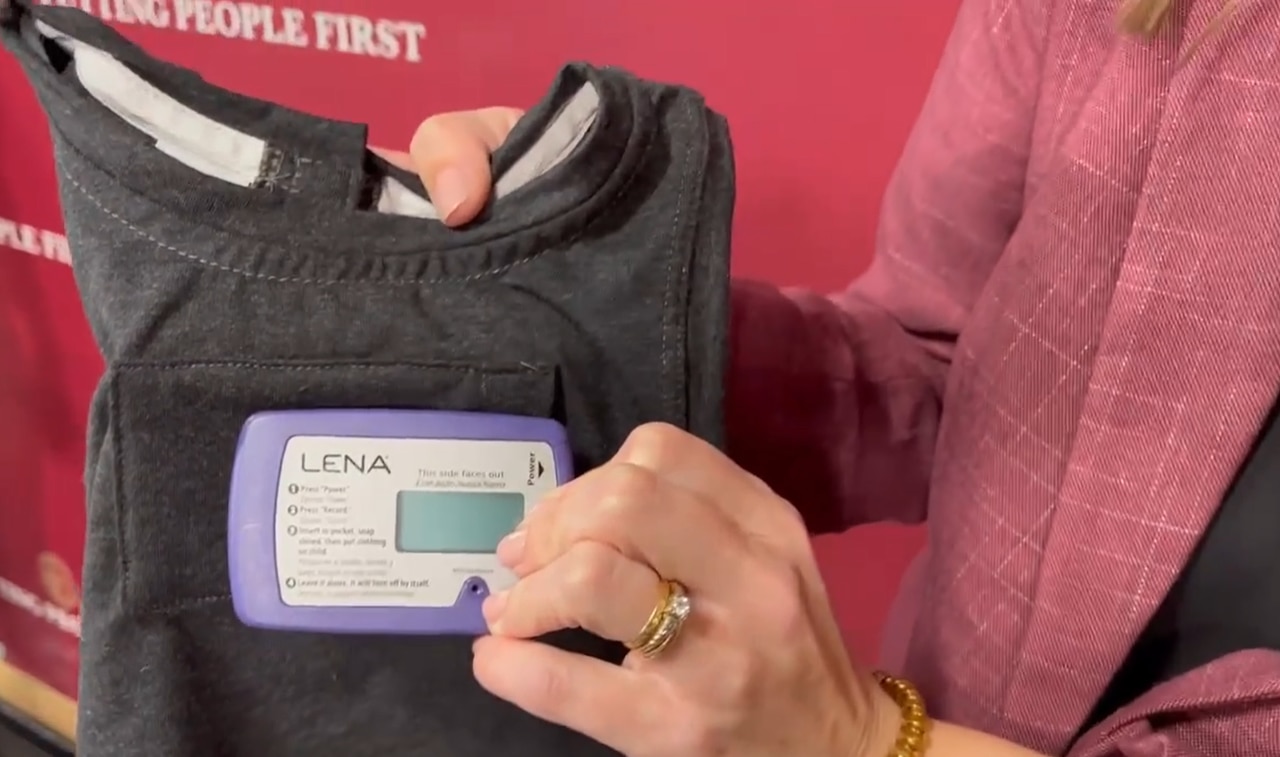Birmingham, largest implementer of talk technology for babies as young as 4 months old
David Sher’s ComebackTown for a better greater Birmingham
Click here to sign up for newsletter. (Opt out at any time)
Today’s guest columnist is Ruth Ann Moss.
We all want our children—all Birmingham’s children—to have bright futures.
Yet, according to the Brookings Institute, “a child born poor in Birmingham has a 1 in 20 chance of making it to the top income distribution, lagging almost everywhere else in the country.”
Luckily, there’s consensus around what it would take to change that.
Research suggests both that the earliest interventions in children’s lives have the biggest long-term impact and that every dollar spent on high-quality early education pays for itself many times over.
Separately, we also know that 90% of a child’s brain is fully developed by the time they each turn five years old.
Most toddlers younger than five aren’t doing long division or reading the great works of Russian literature (side note: nor am I, quite frankly). But even at the youngest ages, children are absorbing the words they hear every day, and using the interactive talk they participate in to form dense neural connections.
This exposure to talk forms the basis for their future ability to communicate verbally and later to read: babies need to hear about 21,000 words a day for optimal brain development.
Ideally, every child in Birmingham would board the big yellow bus on the way to kindergarten having been exposed to millions of words every day, during their most formative years.
Historically at least, this isn’t what’s been happening.
Our starting conditions
- Children who grow up in lower-income communities hear millions fewer words than children who grow up in affluent communities, and engage in far less back-and-forth interaction, which has a 6X impact on early brain development over hearing words alone.
- By the time they reach third grade, only 17% of children in Birmingham are able to read proficiency.
- Only 4% of education-focused philanthropy is dedicated to the early years of a child’s development.
- In Alabama, our per-pupil spending doesn’t begin until children start kindergarten, after much of their neurological architecture has already developed.
Seeing and seizing an opportunity
In 2018, a small group of committed community members met with Mayor Randall Woodfin to discuss an innovative way that our community could use technology to address this pressing issue.
The organization LENA produces a small device that children can wear that counts the number of words they hear each day (without recording them), giving teachers, parents, and caregivers invaluable quantitative data to know if children are getting the “word diet” they need to thrive.
With a substantial investment from Bloomberg Philanthropies and the support of both The Overton Project and the City of Birmingham, Birmingham Talks launched in 2019. Our organization provides cutting-edge LENA technology and personalized coaching to increase interaction between babies and their caregivers, ensuring all the children in our community are prepared for both kindergarten and a life of economic mobility.
This is an approach that works: it’s impactful, cost-effective, and flexible for the needs of every child, family, language, and neighborhood.
As we approach our own fourth birthday, Birmingham Talks has served over 2,000 children. Children who start our programs in lower-talk environments increase exposure to talk by 55% on average. Children who have completed similar programs are 3X more likely to be ready for kindergarten.
Birmingham is currently the largest implementer in the country of early childhood talk technology.
Last year, the City of Birmingham made a historic, visionary $1mm investment in our early learning programs, joining a host of committed philanthropic funders.
This investment covers approximately a quarter of the costs associated with tripling our reach. Our team continues working relentlessly to bring new partners into the fold so that we remain on track to serve 50% of children who start kindergarten in our community by 2025.
We can do this.
Investing in children early is both intrinsically good and economically smart. When our children thrive, our city has a diverse workforce that supports our prosperity regionally, nationally, and globally.
Birmingham’s children deserve the very best from the very beginning. That’s something to get excited about.
And talk about.
Ruth Ann Moss is the founding Executive Director of Birmingham Talks, an initiative that helps children under 5 build lifetime literacy. She can be reached at [email protected].
David Sher is the founder and publisher of ComebackTown. He’s past Chairman of the Birmingham Regional Chamber of Commerce (BBA), Operation New Birmingham (REV Birmingham), and the City Action Partnership (CAP).
Click here to sign up for our newsletter. (Opt out at any time)
